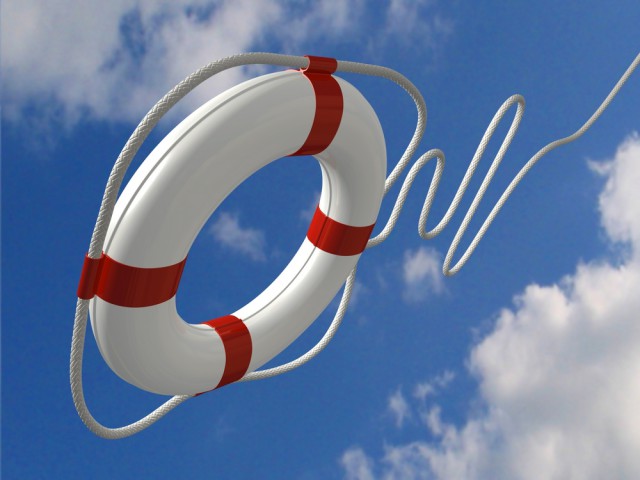
NUI can save Microsoft
I don’t know about you but as a lover of technology and the world around it, I find these times to be quite compelling. Apple, Google, Amazon and Microsoft (the big four) are setting the stage for an epic battle for tech dominance. The many articles and blog posts calling Microsoft dead in the water are way too premature. We are way too early in this new world of mobile computing to call Microsoft out of this game.
However, I will say this: If any of the four previously mentioned companies are in the most danger of failing at the consumer market, it’s Microsoft. The company better figure out how to get things together and quickly as time is not on the leadership's side and their competition is hitting on all cylinders.
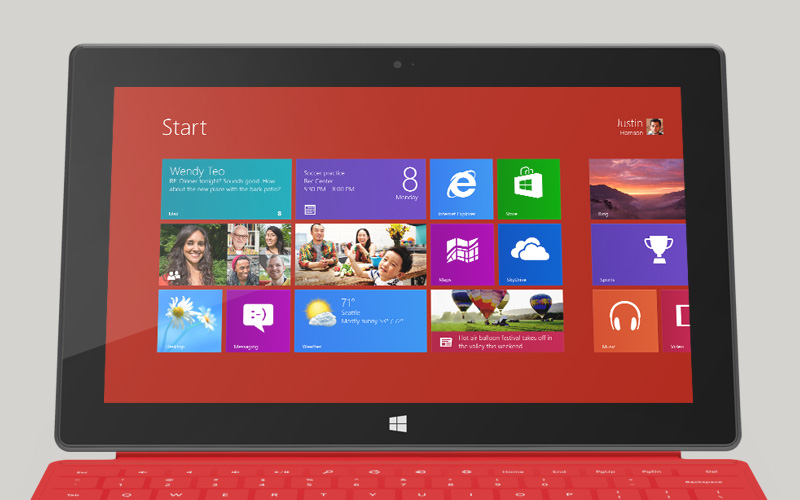
You can run legacy apps on jailbroken Windows RT and will be able to use a third-party app store (soon)
Starting out as a rookie among veterans, in a matter of months Windows RT has transformed into an exciting and intriguing alternative to established tablet operating systems. The trigger for the frankly unexpected makeover is the jailbreak which allows enthusiasts to run unsigned apps on their Windows RT-based devices -- there's even an automated tool which makes modding a breeze. If you think that is not good enough and you still need or want your old apps, a developer has released a tool that allows legacy programs to run on Windows RT.
The tool, however, does not support every Windows-compatible legacy app known to mankind. It comes with some limitations as resource-hogging, complex, .NET-based, modern, 16-bit and 64-bit apps, among others, cannot run. The reasoning, judging by the developer's input on the matter, is to deliver a solid user experience across the board without major compromises when running legacy programs.

Overhauling a home network, Part 2 -- back to FreeNAS afterall
Let us get a bit geeky. This was not my original intention, but it is how things turned out in the end. First, I believe I misspoke twice in part one of this series -- one time was unintentional, the other was apparently my wishful thinking. The first was when I called my recent used server purchase a Dell Optiplex. It is actually a Dell Poweredge. The second involved my new operating system and I'll get to that in a second.
To begin with, the server was running Windows Server 2003 and the small business I purchased it from had failed to wipe the data, but did leave it password protected -- something a tool like Ophcrack may have been able to breach, though I had no desire to try. The server also contained a CD-ROM drive which I needed to replace with a DVD drive in order to install Windows Server 2012 Essentials. Fortunately I had one laying around -- yes, I know that is not normal. You should see our storage room. There are boxes of computer parts and a stack of old towers filling a corner. At least this time the "it will be useful someday" statement worked out for me.
However, the 32-bit server architecture did not support 2012, meaning I moved on to Home Server -- that required 512 MB of RAM, and the server, woefully older than I had thought, only had 256 -- an easy upgrade, but expenses and wife-acceptance-factor for this project were mounting up.
Will you buy Google Chromebook Pixel?
That sound you just heard was Google slapping Apple across the face. Today the search and information giant unveiled and starting selling high-end portable Chromebook Pixel. By just about every measure, Google guns for Apple in its dominant market -- premium PCs, or those selling for $1,000 or more. When rumors circulated about the computer, I opined: "Chromebook Pixel looks like MacBook Pro to me". The impression is stronger now that the real deal is here -- from form factor to price, either $1,299 or $1,449.
Should Apple sweat about Chromebook Pixel? I would. Following a years-long retail trend, Apple share of PCs selling for $1,000 or more was over 90 percent in 2012, according to NPD. Stephen Baker, NPD's vice president of industry analysis, asks if Google is "more trying to compete with Apple and high-end windows machines for premium consumer and maybe corporate?" I answer: Yes. What I want to know: Will you buy Chromebook Pixel? But more importantly: Would you buy Chromebook Pixel instead of 13-inch MacBook Pro?

Can it possibly be true? Microsoft is cool again?
Could it be possible that Microsoft has become cool again? A BetaNews poll seemed to indicate Windows 8 was popular and there have been recent reports that the Surface tablet is "cool" to teens. Now there is this -- a poll conducted by Reuters indicates that young people may actually think the computer company from Redmond, Wash. is cool again.
Reuters reports that "just under half of 853 respondents between the ages of 18 and 29 thought Microsoft is cooler now than it was a year or two ago". If this this is representative of the larger sentiment then it ties in very neatly with recent Apple problems.
Chromebook Pixel is Microsoft's worst nightmare come true -- and Apple's, too
The rumors were true! Google developed a touchscreen Chromebook for release this year. Like today! No one should misunderstand what the computer means competitively. Already, four Microsoft Windows partners produce Chromebooks -- Acer, HP, Lenovo and Samsung. Chromebook Pixel promises to do for the Chrome OS platform what Nexus devices did for Android smartphones and tablets: Establish a reference design for hardware partners and provide developers base system to develop apps for the platform. But it's also a competitive move against PCs running OS X or Windows and Google pushing Chrome OS into the premium notebook market.
Today Google unveiled Chromebook Pixel, following weeks of rumors. The company also extended a vision for Chrome OS. Bottom line: Commitment to the operating system is strong. The search and information giant briefed journalists in different cities. I had to turn down an invite to the San Francisco briefing because of family matters. Do I feel left out! But, hey.

How much would you pay to watch YouTube in Windows 8? $999.99?
A couple of days ago I described the Windows Store as being like a Bangkok night market, filled with nothing but knockoffs. You can’t get an official app for Facebook, Twitter, or Gmail on there, but you can get lots of third-party alternatives, many of which are of dubious quality.
One of the biggest names missing from the Windows Store is YouTube. Google says it has no plans to create an app for Windows 8, but fortunately an enterprising publisher called T.O.K. has got you covered with his exciting sounding “Youtube Player Deluxe”, which really must be deluxe given its $999.99 asking price.

Please don't file for divorce -- I didn't mean to nuke my wife's data
I do not generally use our desktop computer. I prefer my laptop, but my wife likes that desktop and uses it daily. She also keeps her precious files on it, and I have the folder set to backup to Crashplan automatically, as well as to sync with the home server. However, she also uses a small four gigabyte USB drive for files -- I assumed ones that she just wishes to move around with her. I was wrong.
I am not making excuses for myself. Even if I had known the files were backed up I would not have deleted them -- I had no reason to wipe her drive. The truth is that it was in the wrong place at the wrong time and was a victim of my own oversight.

Today Google made me want Glass
We all have heard about Google Glass -- for sometime now. There's talk it's coming (but not when) and that there are unique capabilities (but most details are under wraps). Google Glass is a bit of an enigma, and I have remained largely uninterested in the project. That changed this morning.
Google makes me want a product I had no idea I was even interested in -- I am pretty sure that's the intention. In fact, Google had me drooling in only two minutes and sixteen seconds -- talk about a good sales pitch. And the video did not even require many words to accomplish its task.
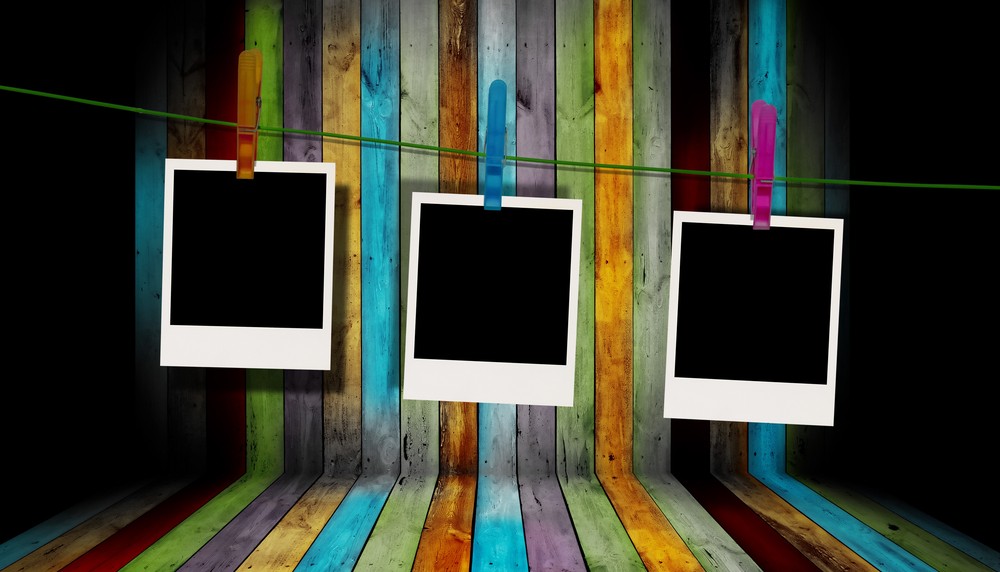
CyanogenMod 10.1 now features HDR mode
The team behind CyanogenMod 10.1 announced a new camera feature for "(almost) everyone" running the popular custom Android distribution on their smartphone or tablet -- support for HDR mode.
The CyanogenMod 10.1 implementation for HDR mode "captures multiple pictures, and then renders them together to form one HDR image", similar to the functionality currently available on the LG-made Google Nexus 4. The software snaps three photos, at minimal, neutral and maximum exposure, and displays a single image at the end of the process, through "some fancy algorithms".
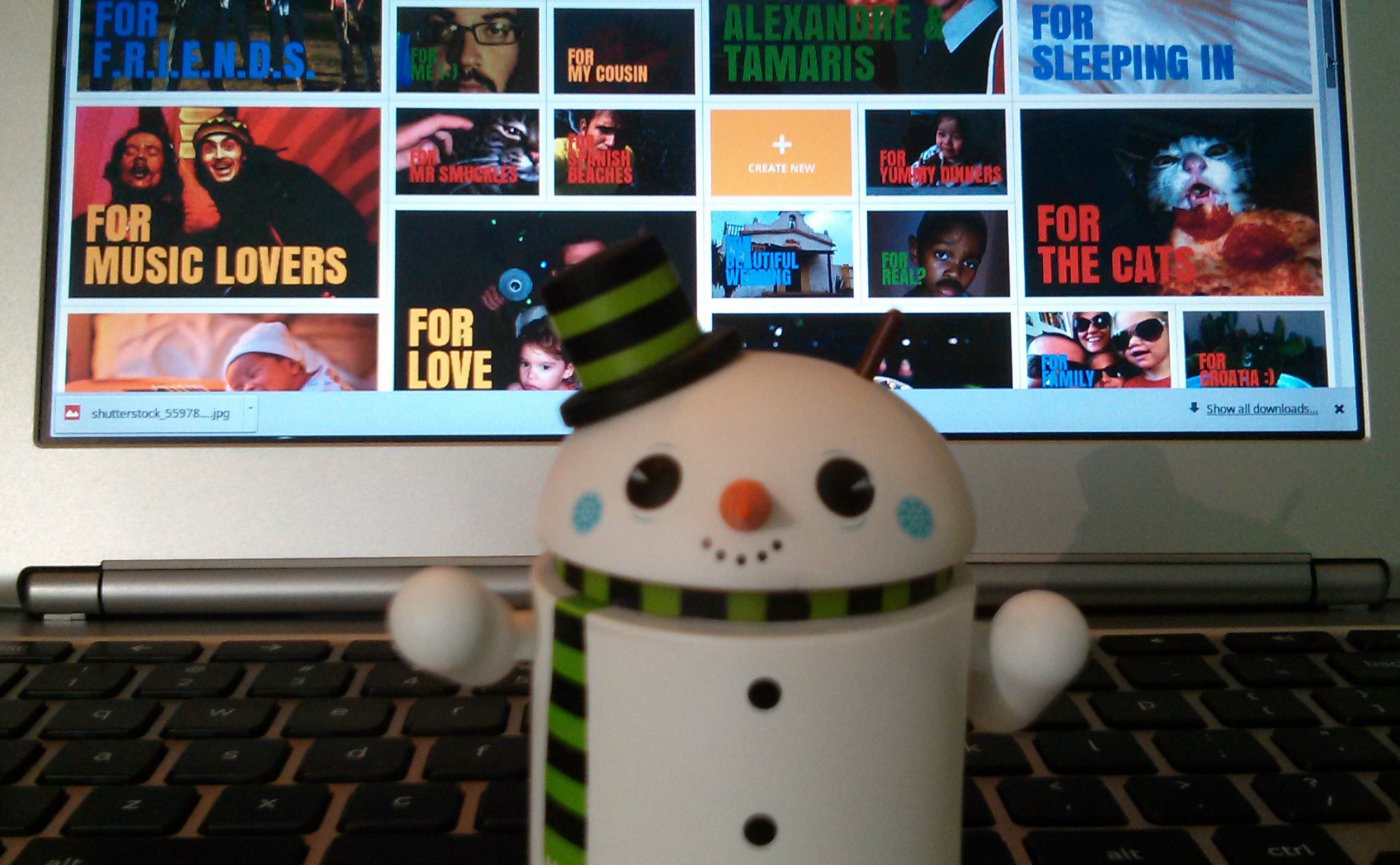
Why I love Chromebook
Third in a series. For Valentine's Day, Wayne Williams and I explained why we love Kindle and Surface Pro, respectively. We've decided to extend the concept into an ongoing series, which I continue about Chromebook and in many more ways Chrome OS.
My Chromebook journey began in December 2010 when Google dispatched 60,000 Cr-48 test units. I used the computer as my primary PC for a week, but no more, being a concept. But, then, my 11.6-inch MacBook Air failed in March 2011, and I reverted back to the Cr-48 during the emergency. In June 2011, Samsung released the Series 5 Chromebook, which I used as my only PC for two solid months. But performance couldn't meet my needs -- that is until the successor, the 550, launched in May 2011. I abandoned MacBook Air and didn't look back. Performance and features met my needs. I traded performance for better ergonomics when switching to the ARM-based Series 3 Chromebook in October.

Protect your Windows 8 PC with Panda Cloud Antivirus
Spanish security company Panda Security Ltd has released Panda Cloud Antivirus Free 2.1.1, a minor update to its free cloud-based security tool for Windows. Version 2.1.1 is the first release to secure a Windows 8 compatible logo after passing the eligibility requirements laid down by Microsoft.
Panda Cloud Antivirus, also available with built-in firewall in Pro form, is primarily a maintenance release, building on the major improvements found in version 2.1, which included real-time protection for Windows 8 Store apps and anti-exploit technology.
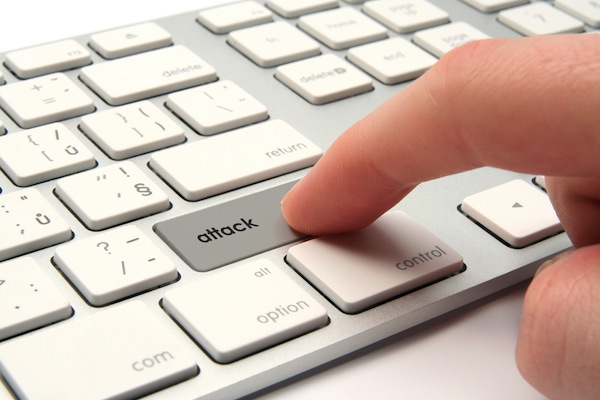
If Apple can't protect itself from malware, how can you trust it to protect you?
Apple may be perceived as a bastion of security and users generally feel safe from the plagues that us Windows users suffer, but market share plays a large part in that perception. The bigger target gets more attention. Well, the party may be over, folks, because the fruit-logo company has a problem, and it is one that is incredibly familiar to Windows users -- Java. The Oracle software platform may be one of the most exploited ones on computers.
Today Reuters reports that Apple, a company largely known for never admitting error -- think "You're holding it wrong" -- released a statement describing "the widest known attacks targeting Apple computers used by corporations". The same exploit had been used to attack social networking giant Facebook.
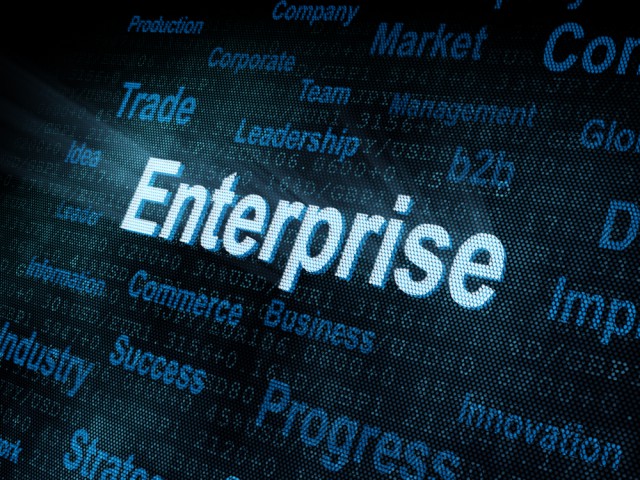
StackMob launches new Enterprise Marketplace
According to Gartner, by 2017 around 25 percent of enterprises will have their own app stores for managing home grown and corporate-sanctioned apps on PCs and mobile devices. Bring Your Own Application (BYOA) is becoming almost as important as Bring Your Own Device (BYOD) in some corporate workplaces.
StackMob, a cloud-based mobile platform provider, has today launched a new Enterprise Marketplace for third-party services, aimed at offering a simple and effective way for larger organizations to build and deploy their own full-featured mobile applications.

The Windows Store is like a Bangkok night market -- full of cheap knockoffs
When Windows 8 launched on October 26 2012, the Windows Store had an estimated 9,000 apps available to purchase or download. Today, according to the excellent MetroStore Scanner, that figure has risen to 43,083 worldwide, of which 28,904 are available in the US store, and 26,385 in the UK one.
The biggest problem with the Windows Store is not the overall number of apps -- in four months it’s seen reasonable growth although the number of new weekly additions has slowed -- the issue is more with quality. While there’s no shortage of third-party apps, many of which are very good, you can’t help but notice how many big names are absent.
